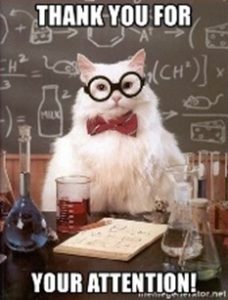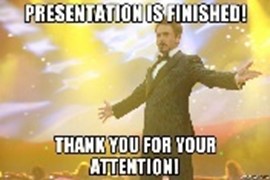Are you making a presentation to a crowd? If so, you could finish your speech with “thank you for your attention.” This post unpacks everything you need to know about the meaning and origin of this phrase.
Thank You for Your Attention Meaning
“Thank you for your attention” is a way of displaying gratitude to a person or a crowd for listening to what you have to say. Typically, speakers will end a presentation using the phrase to thank the audience for listening to their spiel. It’s more common for people to use it when speaking to crowds than individuals.
The phrase suits verbal and written communications. If you’re ending a business email to your clients, you could sign off with “thank you for your attention” as a way of being respectful to them, showing them that you value their time and the effort they put into reading your presentation or letter.
Time is our most valued asset in the modern world, and treating people with respect to their time will ensure that you have a further opportunity to speak to them in the future.
“Thank you for your attention” is a more formal way of saying “Thanks for listening” or “thanks for reading.” If you’re speaking to friends, you’re more likely to use these examples, and when talking to someone you respect or with a higher social standing than you, you’re more likely to use “thank you for your attention.”
Thank You for Your Attention Example Usage
“That wraps up today's presentation. I hope you all learned something, and thank you for your attention.”
“Please, can you find out what is going on with my order? It’s three weeks since I paid. Thank you for your attention to this matter.”
“Thank you for your attention. If there are any questions, I’m happy to answer them.”
“Thank you for your attention; I will see you tomorrow.”


Thank You for Your Attention Origin
Language experts have no idea where the phrase “thank you for your attention” originated. However, there is some speculation that it comes from the age of business writing in the late 1800s. The phrase was a way of thanking people for listening to your argument or side of the story.
The words “thank you” derive from the word “think,” which had the original meaning of “I’ll remember what you did for me,” or “I’m in your debt.”
“Thank you for your attention” would start to enter the English language in the first recorded formats of business writing between parties, and it would go on to be a popular way for people to end their presentation.
Phrases Similar to Thank You for Your Attention
- I appreciate your attention.
- Thank you for your time.
- Thank you for listening.
Phrases Opposite to Thank You for Your Attention
- You didn’t hear a thing.
What is the Correct Saying?
- Thank you for your attention.
Ways People May Say Thank You for Your Attention Incorrectly
Some people may use the phrase “thanks for your attention.” While this phrase carries the same meaning, it’s less respectful and not as formal as “Thank you for your attention.” If you’re addressing a crowd of people you don’t know, using “thanks” instead of “Thank you” may come off as disingenuous.
Acceptable Ways to Phrase Thank You for Your Attention
You can use “thank you for your attention” in live and online presentations where you’re thanking people for listening to what you have to say. You can also use the phrase sarcastically to show people that you realize they were not paying attention to you during your presentation. The phrase suits use in professional settings more than in social conversations.